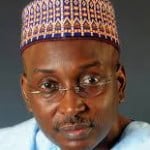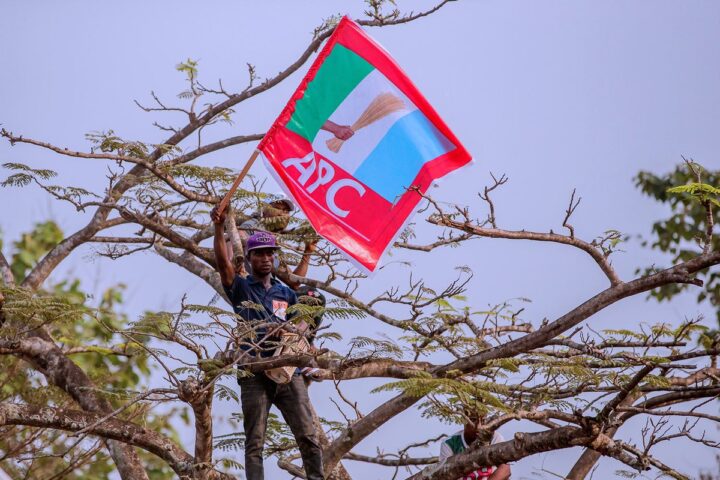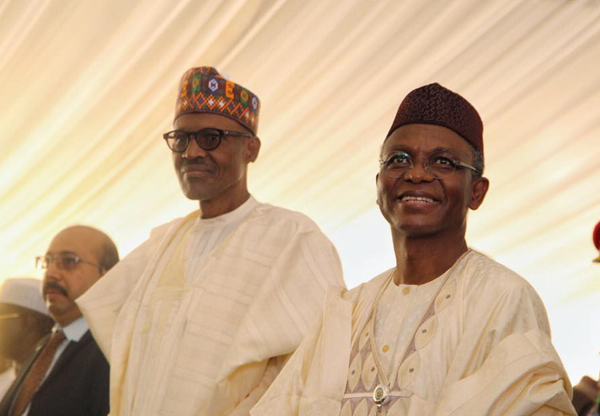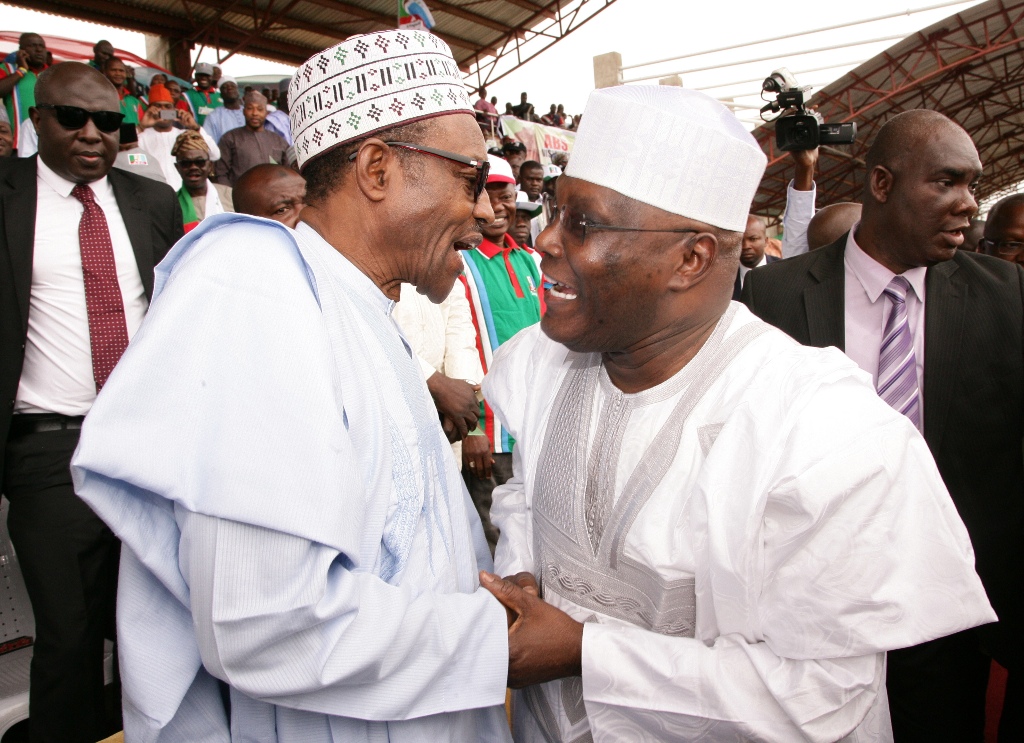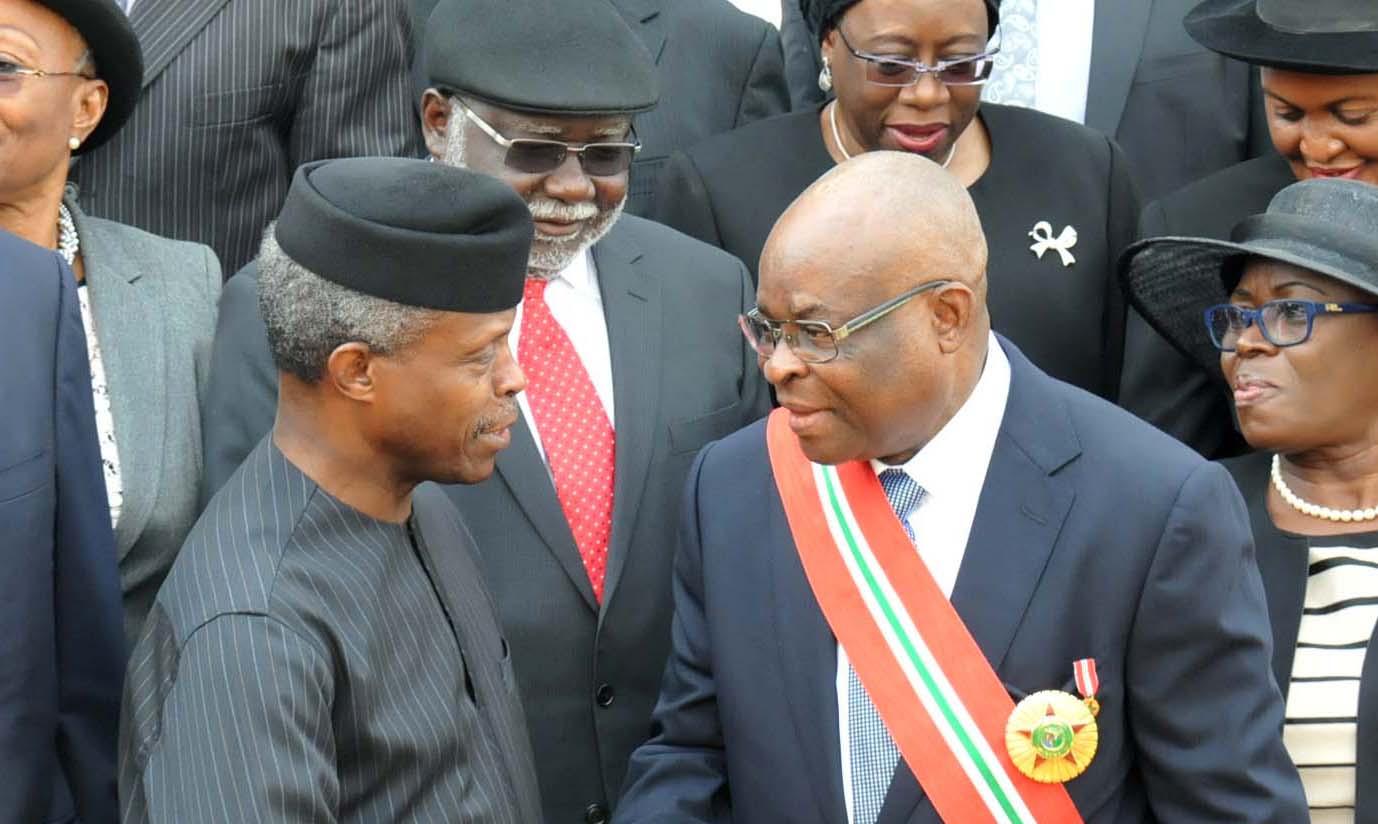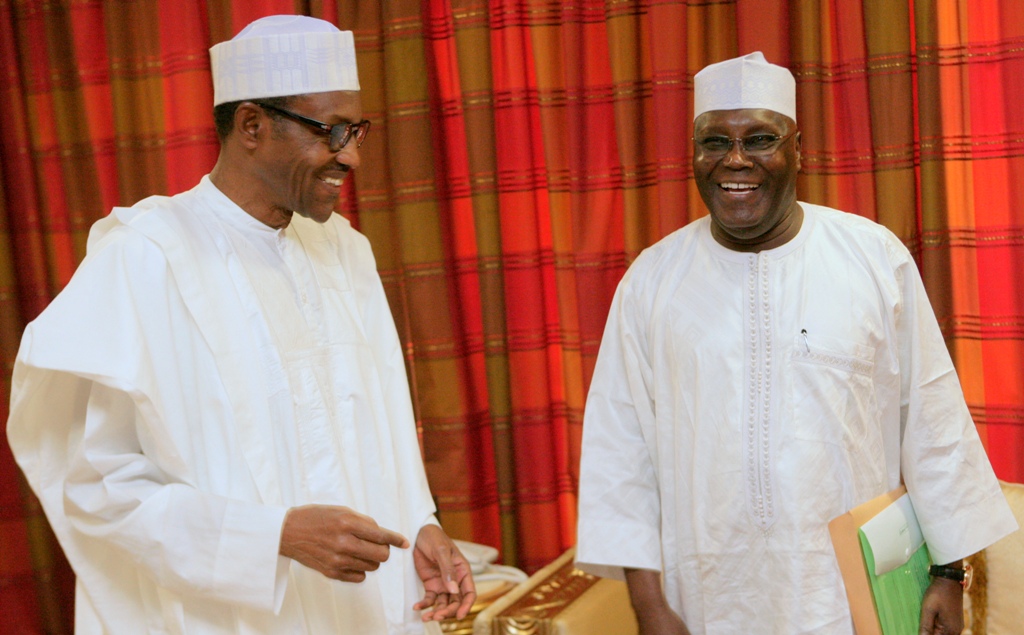What is the difference between PDP and APC? Many would say, they are the same, which is not true. Looking at how both parties manage themselves and how they handle the business of governments when they win elections, here are some findings. First, INEC audit report for APC and PDP for the 2015 general elections reported by Premium Times of May 25, 2018 revealed that PDP spent N2.9 billion, while APC spent N4.8 billion.
The APC audit report, filed by Mai-Alheri and Co., disclosed that the party derived its 2015 income from the sale of nomination forms which generated N329.5 million, while donations and gifts generated N275 million. The party (APC) also spent N296.3 million on administration, N56.5 million on repairs and maintenance, N485,800 million on welfare and N15.4 million on financial charges.
The audit noted that while the party spent N2.9 billion on the 2015 polls, it generated only N604.5 million in the same calendar year, leaving a deficit of N2.3 billion. The party disclosed that this was covered by its surplus from 2014 when it earned about N6.4 billion and spent only N4 billion. The report highlighted that the party’s fixed assets including office equipment was valued at N5.1 million, APC Data Centre equipment at N300,000, furniture and fittings at N6.8 million, motor vehicles at N20 million and library books N3.4 million totaling about N35.8 million.
In the case of PDP’s audit, prepared by Paul Akinade Adebimpe and Co., it showed the party’s income for 2015 derived from donations and levies totaling N200 million and other expenses amounting to N599.2 million. While the party spent N4.8 billion on the 2015 elections, it also spent N1.7 billion on administration, N2.8 billion on its national secretariat and N54 million on other financial expenses. Unlike APC, PDP had a surplus of N9.4 billion from 2014, as it spent only N3.6 billion from the N13 billion it reportedly earned.
Advertisement
In relation to the N13 billion from 2014, perhaps, Nigerians needs to be reminded that ahead of the 2015 elections, as a ruling party in control of the Federal Government, on Saturday, December 20, 2014, the PDP organized fundraising dinner and generated whooping N21 billion for former President Goodluck Jonathan 2015 re-elections campaign. Although owing to public criticisms, and of course legal implications, the PDP subsequently argued that the fundraising dinner was not to support former President Jonathan’s re-election campaign. The N13 billion therefore should be the balance brought forward after the reported expenditure of N13 billion.
Let us for the purpose of analysis assume that the reported N13 billion represents both what was redeemed from the pledged N21 billion at the December 20 PDP fundraising dinner and all other incomes received. This leads us to the second issue, which is acquiring a National Secretariat for the PDP. Nigerians may again recall that on November 14, 2008, the then National Chairman of PDP, Chief Vincent Ogbulafor, organized a fundraising dinner in Abuja to raise the initial N10 billion targeted to commence the construction of 12-storey new PDP National Secretariat, located on Muhammadu Buhari Way, Central Business District, Abuja. Quoting Premium Times, Sahara Reporters of January 22, 2017 reported that the dinner, which was chaired by then Vice President, Dr. Goodluck Jonathan, raised over N6 billion for the project.
Some of the donors include, Mr. Femi Otedola who donated the highest amount of N1 billion and his late father, Chief Michael Otedola, N25 million. Other major donors included Aliko Dangote who offered to supply cement worth N3 billion; the PDP National Working Committee, N1 billion; Mrs. Bola Shagaya, N25 million; Strabag Construction Company N100 million; Ogun State, N10 million; and an anonymous donor, N100 million. Late President Umaru Yar’Adua and his then Vice President, Dr. Jonathan, contributed N527,205 and N454,735, representing 15 per cent of their basic salaries, respectively. Each of the party’s 28 state governors at the time were reportedly levied N50 million by the party.
Advertisement
The contract for the PDP National Secretariat project was awarded to BNL Limited and the party paid an initial N2 billion and they were billed to complete construction of the 12-storey new National Secretariat for the PDP in 126 weeks. Sahara Reporters further reported in January 2017 that because of the construction variations over the years, the project cost rose to N16 billion from the 2008 estimated N10 billion out of which the party had paid N6 billion before work stopped.
In contrast to PDP, the APC has already acquired the property located at No. 40 Blantyre Street, Wuse 2, Abuja where the APC National Secretariat is located. It first rented the property in 2013, in 2016, the Chief Oyegun leadership of the party bought the property from the owner at the cost of N2.5 billion and agreed to make payment in installments. So far, the party has been able to pay more than N500 million with about N1.9 billion outstanding. This has been achieved without any fundraising funfair.
The narrative of the PDP National Secretariat project underscores the reality of PDP’s financial recklessness in managing affairs of the Federal Government for the sixteen (16) years it governed the country (1999 – 2015). Allegations of mismanagement and corruption were frequent and unfortunately reduced to public noise. For instance, in 2012, following the January national protest against increases in the prices of petroleum products, there were allegations of oil subsidy fraud, with the House of Representatives eventually setting up the Hon. Farouk Lawal ad-hoc Committee to verify the actual subsidy requirements of the country.
At the end of the investigation, the Committee reported that “contrary to official figure of subsidy payment of N1.3 Trillion, the Accountant-General of the Federation put forward a figure of N1.6 Trillion, the CBN N1.7 Trillion, while the Committee established subsidy payment of N2.587 Trillion as at December 2011, amounting to more than 900% over the appropriated sum of N245 Billion. This figure of N2.587 Trillion is based on the CBN figure of N844.944 billion paid to NNPC, in addition to another figure of N847.942 billion reflected as withdrawals by NNPC from the excess crude naira account, as well as the sum of N894.201 billion paid as subsidy to Marketers. The figure of N847.942 billion quoted above strongly suggests that NNPC might have been withdrawing from two sources especially when double withdrawals were also reflected both in 2009 and 2010.”
Advertisement
The report of the 2012 subsidy probe threw up issues of accountability especially by NNPC with the strong charge that “NNPC feasted on the Federation Account to bloat the subsidy payable, some of the marketers were involved in claiming subsidy on products not supplied.” In particular, the report also indicted the Accountant-General of the Federation that served in 2009 for making payments in equal installments of N999 Million for 128 times, totaling N127.872 billion.
Following the release of the House of Representatives subsidy investigation report, the Chairman of the ad-hoc Committee, Hon. Farouk Lawal enmeshed himself in $3 million bribe scandal reportedly demanded from Mr. Femi Otedola, a major oil marketer, to clear him from allegations of subsidy fraud. After the House of Representatives subsidy investigation, there were claims and counter claims of missing oil revenue. In October 2013 for instance, former CBN Governor, Mallam Sanusi Lamido Sanusi alleged that $49.8 billion from the sales of crude oil between January 2012 – July 2013 was missing from NNPC accounts. Following series of audits and reconciliation meetings involving NNPC, CBN and Ministry of Finance, the former CBN Governor reported the missing amount to be $20 billion while the former Minister of Finance, Mrs. Ngozi Okonjo-Iweala reported $10.8 billion. On February 20, 2014, former President Goodluck Jonathan suspended Mallam Sanusi from office on charges of financial misconduct. After the suspension of Mallam Sanusi, PricewaterhouseCoopers (PwC) confirmed that about $20 billion was the missing amount.
Throughout the tenure of the Jonathan administration (2010 – 2015), allegations of corruption against public officers were constant features. In 2012, there was the case of Police Pension Task Force resulting in Senate investigation. Some of the revelations include withdrawal of N24 billion for payment of pension that required about N3.5 billion. The Chairman of the Pension Review Task Team, Alh. Abdulrasheed Maina, informed the Senate Committee of two accounts in Lagos where police pension funds were lodged, each amounting to N21 and N24 billion. Alh. Maina reported daily withdrawals of various sums of money from these accounts ranging from N200 to N300 million. Total sum of N273.9 billion was reported by the Senate Committee to have been looted in 6 years.
Other cases of corruption charges against public officials under PDP (1999 – 2015) include the case of $180 million Halliburton; $1.1 billion Malabo Oil; Princess Stella Oduak N255 million Aviation Ministry bulletproof cars; N10 billion jet scam involving the Petroleum Minister, Mrs. Dizieni Alison Madueke; House of Representatives Capital Market probe; N360 billion service wide scam; and the Soludo’s allegation of missing N30 trillion.
Advertisement
What is the corruption scorecard of the APC since it took over management of the Federal Government in 2015? The EFCC Chairman, Mr. Ibrahim Magu, in December 2018 told journalists that N794 billion, $261 million, £1.1 million, €8.2 million, 86,500 CFA and 407 mansions were recovered. In addition, it secured 703 convictions. Other similar cases include the recovery of N93,558,000, $530,087, £25,970 and €5,680 from 5 judges (Justices Adeniyi Ademola, Kabir Auta, Muazu Pindiga, Mohammed Tsamiya and I. A. Umezulike) following sting operations by operatives of Department of Security Services in October 2016.
There was also the uncovered case of $2.1 billion arms deal by Col. (Rtd) Sambo Dasuki, former National Security Adviser under the Jonathan PDP administration. The breakdown showed that N1.5 billion was paid to Alh. Bashir Yuguda, which was reportedly disbursed in respective sums to the following PDP chieftains – N600 million to PDP 2015 election campaign Contact and Mobilization chairmen (Chief Bode George, Amb. Yerima Abdullahi, Mr. Peter Odili, Alh. Attahiru Bafarawa, Chief Jim Nwobodo and Col. (Rtd) Ahmadu Ali); N300 million to BAM properties linked to Alh. Bello Haliru, former PDP National Chairman; N200 million to Alh. Bello Sarkin Yaki, former PDP Kebbi State 2015 gubernatorial candidate; N100 million to Alh. Mahmud Shinkafi, former PDP Zamfara state governor; and N100 million to Dalhatu Limited linked Alh. Attahiru Bafarawa.
Advertisement
Other disbursements were N750 million to Reliance Referral Hospital Limited for special prayers; N380 million to support re-election of PDP members of House of Representatives; N550 million to Thisday Newspaper allegedly as compensation for attacks on the newspaper’s offices in Kaduna and Abuja in 2012; N120 million to Nduka Obaigbena allegedly as compensation for copies of various newspapers seized in June 2014; N170 million for the purchase of four-bedroom duplex; N260 million paid to Chief Tony Anenih; N345 million paid to Sen. Iyorchia Ayu; and N90 million to Dasuki’s son.
There was also the May 2018 EFCC discovery of $9.7 million and £74,000 from Mr. Andrew Yakubu, former Group Managing Director of NNPC concealed in a building in Kaduna. Similarly, the EFCC discovered in April 2017 sums of $43,449,947, £27,800 and N23,218,000 in Ikoyi apartment linked to Amb. Ayodele Oke, the sacked DG of the National Intelligence Agency (NIA). Around the same period, there was the reported N272 million grass cutting contract by the former Secretary to the Federal Government (SGF), Engr. Babachir David Lawal, which he allegedly awarded to his company.
Advertisement
There is, of course, the recent case of the Chief Justice of Nigeria, Justice Walter Nkanu Onnoghen, who undeclared $3 million lodged in five accounts, which led to his suspension from office. From these accounts, what is very clear is that while under PDP’s sixteen (16) years in control of the Federal Government, the country witnessed long lists of suspected cases of corruption, endless investigations, low convictions, hardly any recovery, etc., in the case of three (3) years of APC, the narrative is best summarized by the accounts of Mr. Magu, EFCC Chairman – recovery of N871 billion, 407 mansions and 703 convictions.
A graphic estimation of the differences between the PDP and APC is represented by how the two parties handled the basic challenge of acquiring a National Secretariat. After 10 years of work, the PDP abandoned the 12-storey National Secretariat project haven expended over N6 billion. In contrast, within three years of existence (between 2013 and 2016) as a party, the APC was able to acquire a National Secretariat at the cost of N2.5 billion and has paid more than N500 million with about N1.9 billion outstanding.
Advertisement
A second reality is cost of campaigns. From INEC Audit Reports, PDP claimed to have spent only N2.9 billion while APC spent N4.8 billion. Just looking at the $2.1 billion Dasuki arms deal money, which substantially was expended to fund the 2015 PDP campaigns, it is clear that the N2.9 billion was just a fraction of what was actually expended. In fact, Premium Times of May 25, 2018, reported former President Obasanjo, at a press conference on Thursday, May 10, 2018 arguing that PDP spent $3bn on 2015 elections.
Related to campaign funds, the recently speculated expenditures of PDP Presidential aspirants at the October 6, 2018, Port Harcourt Convention would readily come to mind. The media speculations were that Alh. Atiku Abubakar spent about $5,000 on each of the over 3,000 delegates at the convention. Another speculated account also suggested that Governor Aminu Waziri Tambuwal with the support of Governor Wilson Wike spent about $10,000 on each delegate.
In the case of APC, beyond logistical costs of organizing the direct primaries in states, the Abuja National Convention of October 6, 2018, which was incurred by the party, President Buhari who emerged as the Presidential candidate of the party wouldn’t have incurred any personal cost. This however may not correspond with the experiences of other candidates at gubernatorial and other lower levels. There were certainly reported cases of vote buying incidences also in APC, but hardly anywhere near the scale in PDP.
Underpinning extravagant costs for campaign expenditures as reported in the case of PDP require that we ask the questions; are campaign donations just a generous support? Or are they business investment? Looking at the reality that some of the donors to PDP projects (both Secretariat project and campaigns) also feature prominently in some of the reported corruption cases such as the subsidy fraud for instance, the reality that most donations are simply business investments could easily be deduced.
With high incidences of corruption, it is only logical that national development will remain elusive. This explains for instance why given average price of $100 per barrel for Nigerian crude between 1999 and 2014 at an average 2.1 million barrels per day, Nigeria was reported to have squandered about N77 trillion. In contrast, since 2015, the highest price of Nigerian crude recorded was around $74. In the three years life of the President Buhari APC led Federal Government, the country only earned N1.68 trillion from oil.
The temptation to ignore some of these realities could be high especially given politically charged atmosphere. Partly on account of such temptations, there are reports of leading PDP chieftains and their apologists claiming that all completed projects by the President Buhari administration are PDP projects. While it may be true that these projects were started by PDP administrations between 1999 and 2015, the fact is, if PDP had remained in government, they wouldn’t have been completed. They will simply be revalued, more moneys released, which may just end up in private accounts of public officials and PDP leaders, but there would be hardly any progress towards completing the projects.
This would have been the story of Abuja – Kaduna; Itakpe – Ajaokuta – Warri; Lagos – Abeokuta – Ibadan; Abuja Metro rail lines; Port Harcourt and Abuja airports; 2nd Niger bridge; Abuja – Kaduna – Kano highway; Ilorin – Jebba Road; Abuja – Keffi – Lafia – Makurdi roads; Suleija – Minna road; and so many others. This is in addition to other social investments on school feeding, N-Power, tradermoni, etc. For the first time in the history of the country, power generation has reached 7,000 Mega Watts. And unlike under PDP administered Federal Government when billions of dollars disappeared from NNPC accounts, under the President Buhari APC led government, in addition to FAAC allocations to states, Paris Club refunds amounting to N760.18 billion have been paid to the 36 states governments.
Many PDP leaders and apologists will continue claim all these as their achievements. Arguing that these are PDP achievements would just have some comic entertainment value. May be Nigerians should just accept that they are truly PDP’s achievements, in which case we should just simply ask PDP, when will they be commissioning their new 12-storey National Secretariat? Perhaps, in order to speed up work on the 12-storey PDP National Secretariat, they (PDP leaders) can invite the APC leadership to take over management of the contract. Without any new valuation and with the same contractors, at the same cost of N10 billion, with only outstanding payment of N4 billion to the contractor, the APC leadership should be able to get the project executed given their managerial records.
It is such a patent reality that PDP’s record in public service only disburses public resources to personal accounts of public officials and party leaders, while APC is able to disburse resources to contractors and ensure that infrastructural projects are completed!
email: [email protected]
Views expressed by contributors are strictly personal and not of TheCable.
Add a comment
